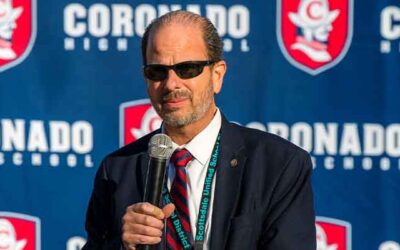By Kurt Rohrs |
Recent legislation mandates that public schools offer Mental Health Instruction and Social and Emotional learning (SEL) programs to their curriculum. But the legislation does not specify what those programs should consist of.
However, companion legislation does offer some guidance on SEL instruction by prohibiting instruction typical of Critical Race Theory (CRT) doctrine from being presented in classrooms.
The legislation gives seven specific prohibitions on social instruction: It prohibits teaching that:
1. One race, ethnic group or sex is inherently morally or intellectually superior to another race, ethnic group or sex.
2. An individual, by virtue of the individual’s race, ethnicity or sex, is inherently racist, sexist or oppressive, whether consciously or unconsciously.
3. An individual should be invidiously discriminated against or receive adverse treatment solely or partly because of the individual’s race, ethnicity or sex.
4. An individual’s moral character is determined by the individual’s race, ethnicity or sex.
5. An individual, by virtue of the individual’s race, ethnicity or sex, bears responsibility for actions committed by other members of the same race, ethnic group or sex.
6. An individual should feel discomfort, guilt, anguish or any other form of psychological distress because of the individual’s race, ethnicity or sex.
7. Academic achievement, meritocracy or traits such as a hard work ethic are racist or sexist or were created by members of a particular race, ethnic group or sex to oppress members of another race, ethnic group or sex.
Parents are concerned that SEL programs may still be used to usher in controversial political and social ideologies concerning race relations (CRT), child sexuality (CSE) and neo-Marxist political doctrine (“Equity” as Wealth Redistribution), which may be buried in the details of certain programs. Parents would probably be far more comfortable if these ideological considerations were carefully scrubbed from SEL curriculum.
It may be far more effective to base SEL programs on agnostic, apolitical concepts that are generally accepted across cultural boundaries and are not agenda driven by activist special interest groups. Programs that focus on good character and positive behaviors, instead of specific identity group grievances and restitution typical of cultural Marxist doctrine, would most likely find far greater support in the community.
Here are several positive social behaviors that are generally accepted across many cultures that we used to present to students and which generated little controversy. Perhaps we never should have gotten away from these fundamental principles of behavior.
TRUSTWORTHINESS
-
- Be honest. Don’t deceive, cheat, or steal.
- Have integrity. Do what you say you’ll do.
- Keep your promises.
- Be loyal. Stand by your values.
RESPECT
-
- Follow the Golden Rule.
- Be accepting of differences.
- Be courteous to others.
- Deal peacefully with anger, insults, and disagreements.
- Be considerate of others’ feelings.
RESPONSIBILITY
-
- Do what you are supposed to do. Try your best.
- Persevere. Keep on trying.
- Be self-disciplined.
- Think before you act. Consider the consequences.
- Be accountable for your words, actions, and attitudes.
FAIRNESS
-
- Play by the rules.
- Take turns and share.
- Be open-minded. Listen to others.
- Don’t take advantage of others.
CARING
-
- Be kind.
- Be compassionate.
- Express gratitude.
- Forgive others.
CITIZENSHIP
-
- Do your share to make your home, school, and community better.
- Cooperate.
- Stay informed. Vote.
- Be a good neighbor.
- Make choices that protect the safety and rights of others.
- Protect the environment.
“Whole Child” Concept
The newest iteration of SEL appears to be the “Whole Child” initiative, which combines the academic education of children and the management of their physical, mental, and emotional well-being. The “Whole Child” initiative is driven primarily by the Association of Supervisors and Curriculum Development (ASCD) in conjunction with the Centers for Disease Control (CDC) in an apparent effort to expand government agency influence into the home life and parenting of children. It is described by the Whole School, Community, and Child (WSCC) model as having 10 components:
- Physical education and physical activity
- Nutrition environment and services
- Health education
- Social and emotional climate
- Physical environment
- Health services
- Counseling, psychological, and social services
- Employee wellness
- Community involvement
- Family engagement
Other collaborators are the Priscilla Chan/Mark Zuckerberg Initiative and Collaborative for Social and Emotional Learning (CASEL). Both these collaborators’ organizations have been criticized recently for surreptitiously weaving controversial Social Justice doctrine into seemingly innocuous education programs.
Whole Child programs can take on a variety of forms. The Chandler Unified School District’s approach includes several specific, and far less controversial, programs such as:
-
- Athletics
- Art Masterpiece
- Mandarin Dual Language
- Academy and Traditional Schools
- Special Needs Programs
- Band and Orchestra
- Spanish Dual Language
- Gifted Programs
- STEM Programs
There seems to be no generally accepted guidelines on SEL programs and the proper balance of academic instruction (the realm of teachers) and social instruction (the realm of parents). Both communities appear to be encroaching upon each other’s “turf” with parents recoiling about intrusive social instruction in the classroom and teachers dismayed about alternative school choice options being exercised by parents because of their discomfort.
It is long past time to resolve these conflicts with clear and distinct boundaries with respect to the education of, and raising of, children. Our children will be the ones who benefit most.
Kurt Rohrs is a candidate for the Chandler Unified School District Governing Board. You can find out more about his campaign here.








